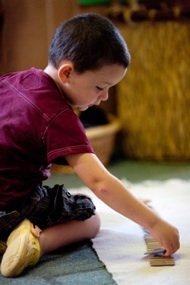School is out for the summer, which is great fun for the kids and a bunch of extra work and shuffling for you. It’s challenging to make the transition from having the kids in school all day to having them home, or finding enough activities to keep them busy and engaged.
Some children really thrive on a slow paced, relaxed, summer schedule. But other kids go a little bonkers when you take away the social outlet of school. If you’ve got a drama queen or a comedian on your hands, consider sending them to an acting camp.





